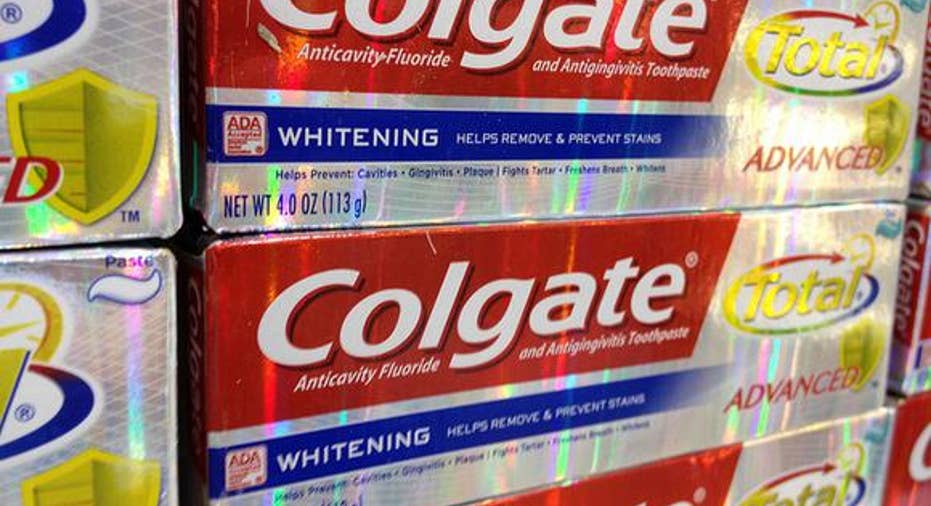3 Top Dividend Stocks for Retirees

Investors in retirement typically gravitate toward solid and reliable investments, meaning companies that can deliver consistent returns for shareholders through good and bad economic environments. If you are looking to add those kinds of companies to your portfolio, names such as PepsiCo , Colgate-Palmolive , and Wal-Mart are remarkably attractive dividend stocks for retirees to consider.
PepsiCoPepsiCo is a market leader in the global snack and soft drink industries: The company owns an enormously valuable portfolio featuring 22 different brands that each make over $1 billion each in annual global sales. This includes not only traditional names such as Pepsi, Lay's, and Doritos, but also more dynamic brands targeted toward health-conscious consumers, like Gatorade, Tropicana, and Quaker Oats.
PepsiCo comes in second to Coca-Cola in traditional carbonated drinks, but the company is about much more than sodas. More than 50% of its profits come from snacks, and the company is rapidly expanding into categories such as bottled water, juice, and other still drinks. In fact, traditional sodas now generate only 25% of PepsiCo's total revenue, and the company is a market leader in many of its main markets.
IMAGE SOURCE: PEPSICO
Management is also running a tight ship; PepsiCo delivered over $1 billion in cost savings during 2015, and core constant currency operating margin increased by 30 basis points versus 2014. The company is planning to achieve an additional $1 billion in costs savings during 2016, as the overall plan is to cut expenses by $5 billion annually from 2015 to 2019.
PepsiCo has a spectacular trajectory of dividend payments over the long term, the company has increased dividends over the last 44 consecutive years, successfully raising its cash distributions for investors under all kinds of economic conditions. The dividend yield is in the neighborhood of 3% at current prices, and PepsiCo is planning to reward investors with $7 billion via dividends and buybacks in 2016.
Colgate-PalmoliveColgate-Palmolive has sizable presence in the hygiene and personal care markets; the company sells household products such as detergents, deodorant, shampoo, and shower gels. In addition, nearly 14% of revenue comes from its pet nutrition business, in which Colgate-Palmolive operates under the Hill's brand. Nevertheless, the lion's share of the company's sales and cash flows come from oral care, where it has a leading presence on a global scale.
According to management, Colgate-Palmolive has44.9% market share in toothpaste, a 32.4% share in manual toothbrushes, and a 41% share in mouthwashes around the world. The company has done an amazing job at expanding internationally; it operates in more than 200 countries and territories, and generates over 80% its total revenue in foreign markets.
IMAGE SOURCE: MOTLEY FOOL
The company is particularly strong in emerging markets, where it has a nearly 50%market share in toothpaste. Currency depreciation and economic turmoil in those markets are dragging on Colgate-Palmolive's financial performance lately, however, its leadership in emerging markets also give it exceptional opportunities for long-term growth. According to data from Euromonitor, nearly 95% of all global population growth in the coming decades will occur in emerging markets, and Colgate-Palmolive is in a position of strength to capitalize on this huge opportunity.
Colgate-Palmolive has paid uninterrupted dividends since 1895 -- a truly extraordinary track-record of consistency over the long term -- and has increased dividends over the last 53 consecutive years. The dividend yield now is in the area of 2.3%.
Wal-MartScale is a crucial source of competitive advantage in discount retail, and Wal-Mart is the biggest retailer on the surface of Earth. The company has more than 11,500 stores serving nearly 260 million customers per week around the world, and Wall Street analysts are, on average, forecasting it will have $482 billion in revenue during the current year.
This gargantuan size provides negotiating power to Wal-Mart, and the company leverages that to obtain low prices and flexible financial conditions from suppliers. Besides, scale allows Wal-Mart to spread its fixed costs on a massive amount of products, thus reducing fixed costs per unit. Needless to say, price competitiveness is of utmost importance to customers in discount retail, and Wal-Mart comes second to none in this area.
IMAGE SOURCE: MOTLEY FOOL.
The company is raising salaries, and increasing expenses in areas such as as employee training and e-commerce technology. These initiatives will hurt profit margins in the short term, but management is doing the right thing by focusing on providing a better shopping experience over the long term, rather than putting too much focus on quarterly profit figures.
Wal-Mart announced its first dividend ever in March 1974, and the company has increased distributions every year since then. Shares of the retail juggernaut are yielding nearly 3% at current market prices.
The article 3 Top Dividend Stocks for Retirees originally appeared on Fool.com.
Andrs Cardenal has no position in any stocks mentioned. The Motley Fool owns shares of and recommends PepsiCo. The Motley Fool recommends Coca-Cola. Try any of our Foolish newsletter services free for 30 days. We Fools may not all hold the same opinions, but we all believe that considering a diverse range of insights makes us better investors. The Motley Fool has a disclosure policy.
Copyright 1995 - 2016 The Motley Fool, LLC. All rights reserved. The Motley Fool has a disclosure policy.



















